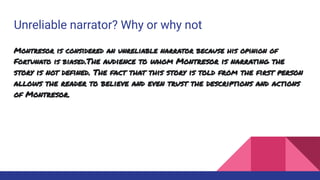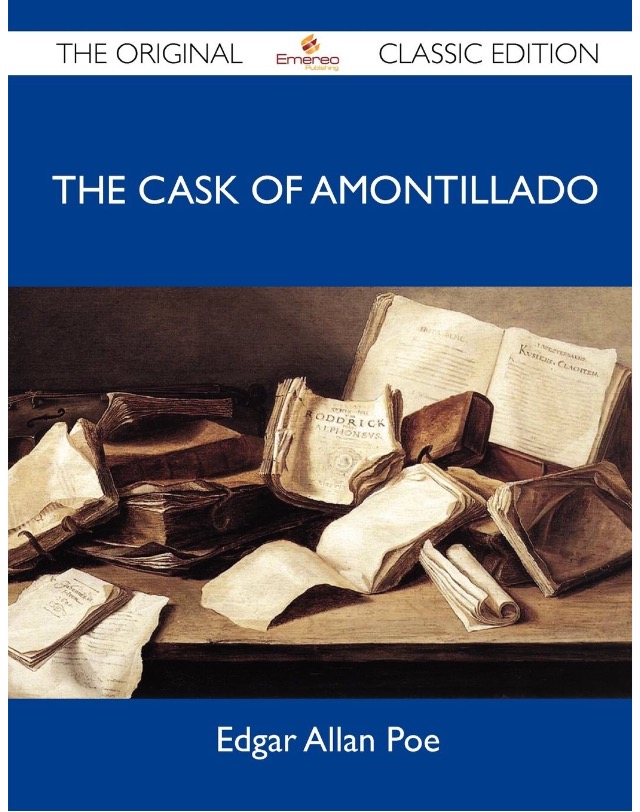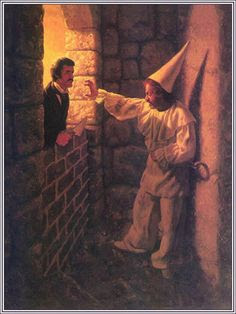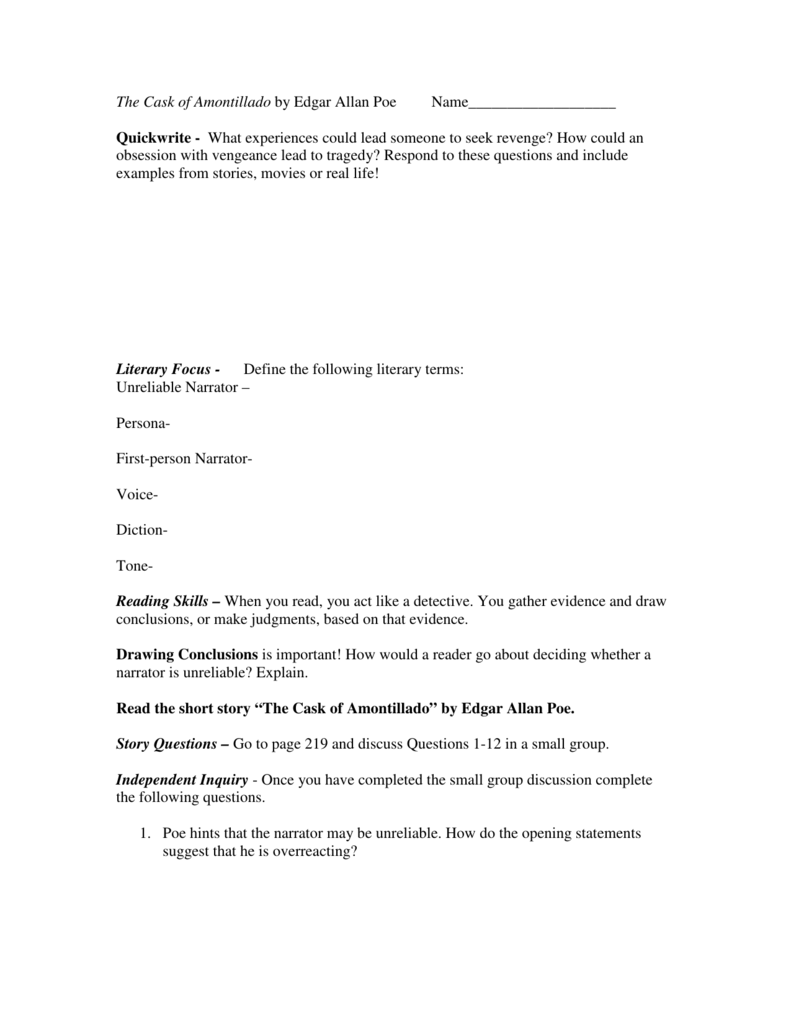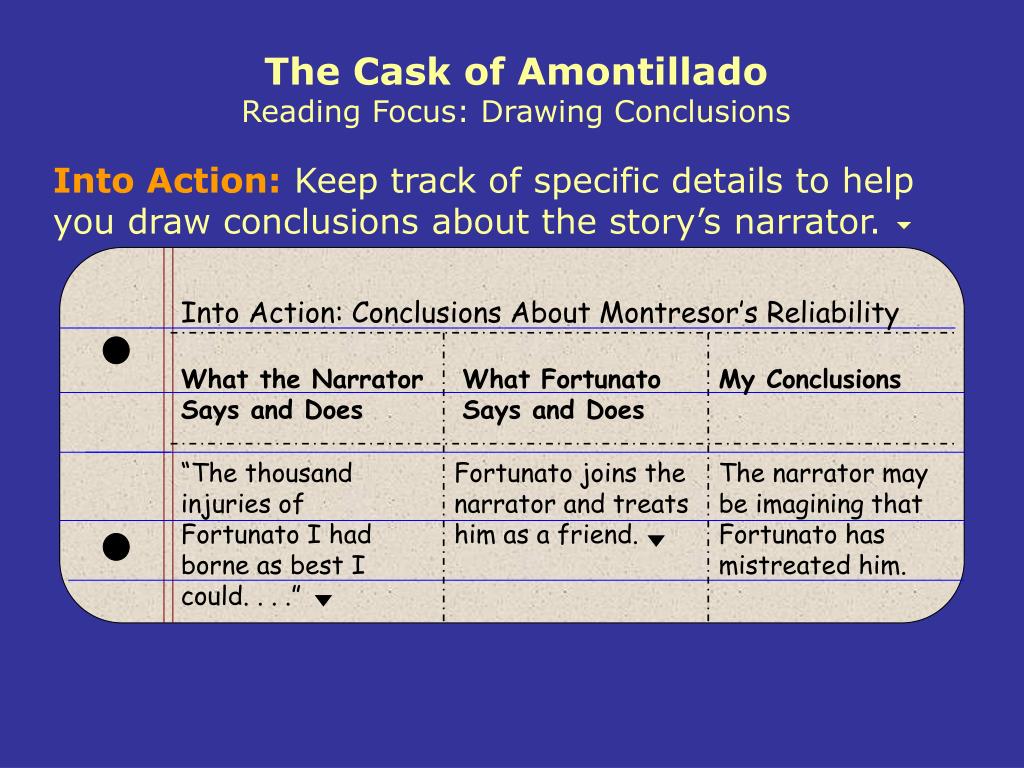In Edgar Allan Poe's short story "The Cask of Amontillado," the narrator is a man named Montresor who tells the story of how he seeks revenge on a man named Fortunato for an unspecified insult. As the reader, we are entirely reliant on Montresor to understand the events of the story and to make sense of his motivations. This raises the question of whether or not Montresor can be considered a reliable narrator.
On the surface, Montresor appears to be a reliable narrator because he presents himself as a calm and collected man who is methodically planning his revenge. He presents the events of the story in a straightforward and logical manner, and he seems to have a clear understanding of the events that took place.
However, there are also several reasons to question Montresor's reliability as a narrator. One of the main reasons is that he is deeply emotionally invested in the events of the story. He is seeking revenge against Fortunato, and this emotional attachment may cloud his judgment and affect his ability to accurately recount the events of the story.
Another reason to question Montresor's reliability is that he admits to lying to Fortunato in order to lure him into the catacombs. This raises the possibility that he may be lying or exaggerating other aspects of the story as well.
Additionally, Montresor's mental state is questionable. He displays a disturbing level of obsession with revenge and seems to take pleasure in the suffering of others. This suggests that he may not be entirely stable or reliable in his perception of events.
In conclusion, while Montresor may appear to be a reliable narrator at first glance, closer examination reveals several reasons to question his reliability. His emotional attachment to the events of the story, his willingness to lie, and his questionable mental state all suggest that he may not be the most reliable source of information. As a result, it is important to approach his account of the events with caution and to consider other possible explanations for the events he describes.

